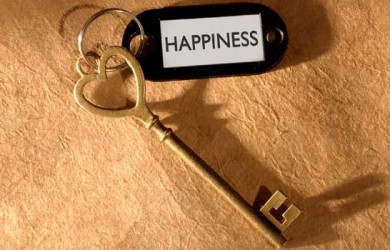Using Buddhist Practices to Accept Responsibility in Marriage

Key Takeaways
Marriage.com AI Quick Summary
It’s illuminating to think of marriage counseling as a lab where ideas from both East and West are being mixed together in a great alchemical cauldron, producing catalytic changes, new ideas, and new angles from which we can view relationships.
If we chose to focus on just one idea that is benefitting from this cross-fertilization in the field, it would be self-responsibility. After studying and practicing marriage therapy over the last three decades, I deeply appreciate those experts who contend that this one skill of the mature adult — being able to admit where we are wrong, or asleep — is the sine qua non of a happy marriage.
Indeed, the magic and alchemy of marriage require us to step up and become mature, to take responsibility for our own dreck. Happily, I find that my clients resonate with this core idea. But the challenge is that most of us find this intellectually sensible, but it is far harder to put into practice. In marriage counseling, this is where we are really asked to stretch.
Taking responsibility for your own stuff
Self-responsibility is about taking the first step to own our stuff; it is a relational skill, yes, but first and foremost it is a commitment we take to simply be honest and recognize one fundamental truth — we all create our own suffering. (And we do a darn good job of creating suffering in marriage.)
This commitment isn’t easy at first, and it is often difficult and challenging work. Believe me, I come from my own personal experience and know how hard it is. But even if it’s tough in the beginning, the rewards and satisfaction are great and leaves us with genuine compassion and a judgment-free caring for those also making the journey.
Universal ethics
When I see clients as a Buddhist marriage counselor, I do not ask them to become Buddhist, but simply to see this intervention as part of what His Holiness the Dalai Lama calls ‘universal ethics.’ He argues that many of the practices from Buddhism can be applied regardless of one’s particular religious orientation.
So with that in mind, in this article and the next, let us look at the skills from the Buddhist tradition that can be especially useful for helping our sense of self-responsibility — mindfulness, training our characters to become more ethical, and the practice of compassion.
1. Mindfulness
Let’s begin with mindfulness. There are many wonderful things to gain from practicing mindfulness, and it has received a gigantic amount of scientific research. This practice, which is basically a form of meditation, helps us become more mature and more able to assume responsibility for our thoughts, words, and deeds. It facilitates this growth by slowing us down enough so that we can actually see ourselves, in each moment of cognition, speech, or action.
2. Self-awareness
This self-awareness is crucial to learning self-control. We cannot change anything that we do not witness. The second benefit of mindful awareness, after slowing down our minds, is that it creates an internal sense of spaciousness. This is an internal space where we can begin to identify the connections between our beliefs, feelings, and actions. Similarly, in Cognitive Therapy, we help the client dig down to their unhealthy core beliefs, question whether they are valid, and then see how these beliefs drive our emotions and behaviors.
If we add mindfulness skills to this strategy, we can not only question these beliefs, as we do in Cognitive Therapy, but we can also create a healing and compassionate atmosphere in our own minds. This sacred space allows us to see where our unhealthy beliefs come from, just how toxic they are and encourages newer, compassionate, and wiser principles to enter our psyche.
For example, a man may often feel completely frustrated simply by his wife’s criticism of, let’s say, how much money he makes. With a mindful curiosity, this man could sink down and see just why her criticism hurts. Perhaps it has to do with the supreme value he places on income as a measure of manhood.
Going deeper he will find that he has held this unhealthy belief for ages, since childhood probably, and that perhaps there is another way of finding his sense of self-esteem. With the careful attention that mindfulness practice brings, and with reminders from his meditation teacher, he will discover that there is a whole new, joyful, and previously-undiscovered dimension of the self — one that exists way beyond his identity as a breadwinner.
This is the third benefit, that of healing. This new discovery yields a man far less defensive to his partner’s observations, more mature about the values he places on people and things, and far more able to generate a natural sense of well-being. A self-responsible man.
In the next article, we will look at how training the mind in ethical practices brings a whole other chapter of respect for our ourselves, and our partners, children, and extended family. And then we will go on to the most profound level of Buddhist practice for relationships, that of loving kindness.
 Tips
Tips
Write your tip or submit a video tip
All tips are reviewed before the publishing.
Share this article on
Want to have a happier, healthier marriage?
If you feel disconnected or frustrated about the state of your marriage but want to avoid separation and/or divorce, the marriage.com course meant for married couples is an excellent resource to help you overcome the most challenging aspects of being married.
Related Articles
Recent Articles
Related Quizzes
Unlock Daily 30-Sec Tips for a Happier, Healthier Relationship
👉 Subscribe FREE on YouTube We'd love your feedback!
We'd love your feedback!
 Expert Q&A
Expert Q&A
Ask your question related to this topic & get the support you deserve from experts.


















 Thanks for your feedback!
Thanks for your feedback!